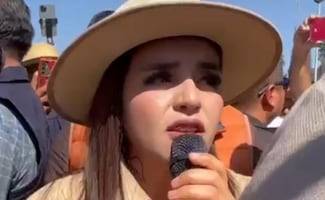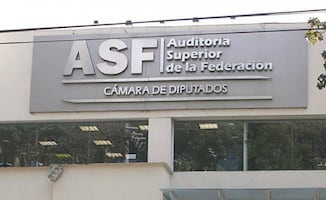Más Información

Con cuadro de su tocayo, Marx deja la oficina de la SEP y toma el Metro; niega moches y malos tratos a trabajadores

Fiscalía de Zacatecas confirma que Ángela Aguilar y Christian Nodal presenciaron enfrentamiento armado; "ellos no fueron el blanco", aclara

Grecia Quiroz presenta denuncia contra Leonel Godoy, Raúl Morón e Ignacio Campos; los acusa de participar en asesinato de Carlos Manzo
Pope Francis will issue a decree authorizing the use of indigenous languages in Mass celebrations when he travels to Mexico next week, one of the symbolic gestures he will make in defense of Indian rights in the country.
The Vatican said Friday that Francis will present the decree during a Mass dedicated to indigenous people in the state of Chiapas on Feb. 15.
Some church authorities had long bristled at the inclusion of indigenous elements in Masses, which was championed by the late bishop of San Cristobal de las Casas, Samuel Ruiz.
Francis, however, has approved such translations of the liturgy and the Vatican spokesman, the Rev. Federico Lombardi, said the Chiapas Mass itself would include readings and songs in three different indigenous languages.
Francis travels to Mexico Feb. 12-18. Aside from the Mass, his one-day visit to Chiapas includes lunch with indigenous people and a visit to the cathedral of San Cristobal de las Casas, where Ruiz is buried.
Lombardi declined to say whether Francis would pray at Ruiz's tomb, saying that while it's not officially on the program "the pope is free to do these things."
Ruiz remains a controversial figure in the church and Mexico. Before his death in 2011, Ruiz became an icon of the struggle of the Mayan Indian groups who were long so marginalized and mistreated that they were forced to work in slave-like conditions into the early 20th century. Ruiz, a proponent of liberation theology, also served as a mediator in peace talks between the government and leftist Zapatista rebels.
History's first Latin American pope hasn't shied from honoring clerics who ran afoul of Vatican authorities by putting into practice the church's "preferential option for the poor." During his 2015 visit to Bolivia, Francis prayed at the site where a Jesuit proponent of liberation theology was tortured and killed by Bolivian paramilitary squads.
It was on that same trip that Francis issued a sweeping apology for the crimes and sins of the Catholic Church against the indigenous during the colonial-era conquest of the Americas.
Aside from indigenous rights, Francis is expected to show strong solidarity with Mexico's poor, its migrant communities and the victims of violence and drug trafficking.
However, no private audience is planned with relatives of the 43 students who disappeared in September 2014 in one of the most notorious crimes in recent Mexican history. Lombardi said family members and relatives of other victims of violence had been invited to attend Francis' final Mass on Feb. 17 in Ciudad Juarez, on Mexico's northern border with the United States.
Similarly, Lombardi said no audience is planned with Mexican victims of clerical sex abuse. Mexico is home to the Legion of Christ religious order, which was discredited after it revealed that its Mexican founder sexually abused his seminarians and fathered at least three children.
Noticias según tus intereses
[Publicidad]
[Publicidad]











